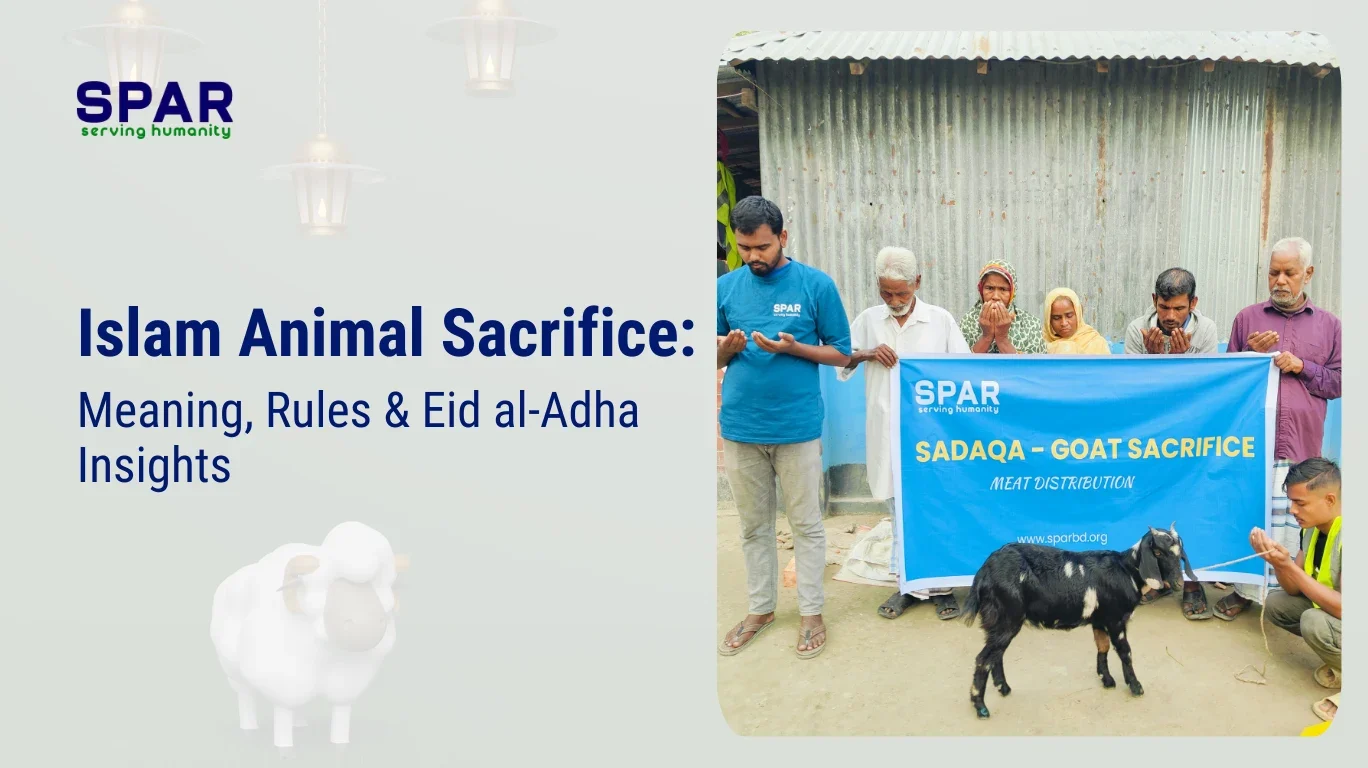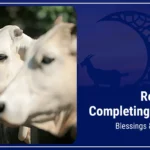Islam Animal Sacrifice: Meaning, Rules, and Importance
Islam Animal Sacrifice (the term is Qurbani or Udhiyah) is a religious rite in Islam performed by Muslims as a special act of worship on Eid al-Adha. It commemorates Prophet Ibrahim’s readiness to sacrifice his son, Ismail, in obedience to Allah. This gesture of submission denotes a Muslim’s unshakable faith, obedience, and gratitude toward Allah. The meat is then divided among family, friends, and the poor, which promotes kindness and generosity. It also strengthens community bonds and stresses treating animals humanely. Any Muslim wanting to participate in this beloved tradition must understand its significance, rules, and importance.
What is Islam Animal Sacrifice?
Animal Sacrifice in Islam: Animal sacrifice is the slaughter of animals such as sheep, goats, cows, or camels during the religious festival. The act of sacrificing commemorates Ibrahim’s loyalty to Allah.
Historical Significance of Islam Animal Sacrifice
The animal sacrifice tradition stems from Prophet Ibrahim’s test of faith. Allah has ordered Ibrahim to sacrifice his darling son Ismail. Impressed with Ibrahim’s genuine obedience, Allah exchanged Ismail for a ram, thereby encouraging Muslims to rely solely on you.
Importance of Animal Sacrifice in Islam
Islamic animal sacrifice has spiritual, ethical, and social meanings:
- I am fully obedient, and I submit to Allah.
- Inspires giving and sharing with others
- It adds community and empathy to a new relationship.
Conditions for Animal Sacrifice
Islam lays out explicit rules regarding animal sacrifice:
- Allowed Animals: SHEEP, goats, COWS, CAMELS.
- Animal Age Cattle (greater than 2 years old), sheep/goats (greater than 1 year old), Camels (greater than 5 years old)
- Health conditions: Healthy, with no sign of injury or sickness.
Timing for Animal Sacrifice
So it must take place on the three specific days of Eid al-Adha: the 10th, 11th, and 12th days of Dhul Hijjah. Thus, Qurbani is not accepted for sacrifices made outside these days.
Method of Slaughter
- Islam prescribes a humane method known as Zabiha:
- Point the animal in the direction of the Qibla.
- Say “Bismillah, Allahu Akbar” when slaughtering.
- Use a razor-sharp knife for a quick, painless cut.
Ethical Treatment During Animal Sacrifice
Islam teaches us to be kind to animals:
- They must be properly cared for and comfortable.
- Don’t force animals into places where they don’t want to be.
- Follow humane slaughter standards without exception.

How to Share Sacrificial Meat
The meat is traditionally divided into three equal portions by Muslims:
- I purchased one part for personal use.
- One part is dedicated to friends and family.
- The first part is for charitable and disadvantaged people.
Spiritual Benefits of Islam Animal Sacrifice
Performing animal sacrifice gives spiritual rewards:
- It creates feelings of gratitude and humility.
- And it inspires appreciation and humility.
- Promotes compassion and generosity.
Clearing Misconceptions About Animal Sacrifice
So first of all, dispelling some myths:
- Compassion: Clearly, Islam is a religion of compassion and expedient, humane slaughter.
- Wasting: Every single part of the animal is to be used properly.
- Sacrifice: Only rich Muslims are obligated to perform animal sacrifice.
Animal Sacrifice in Today’s World
Animal sacrifice isn’t just meaningful in the present:
- We are providing meat to needy communities around the world.
- It tightens them and makes them feel close.
- Delegates are informed about humane treatment of animals, as well as ethical practices.
Final Thoughts
It (Islamic animal sacrifice) is not an animal sacrifice which is done in Islam. By knowing the meaning, rulings, and ethics behind it, Muslims can engage in this important act of worship with sincerity and intention, strengthening themselves and the community of which they are a part Further reading.
What is the meaning of Islamic animal sacrifice?
It represents the faith and obedience of Prophet Ibrahim toward Allah, teaching lessons of devotion and gratitude.
Which animals can Muslims sacrifice during Eid al-Adha?
Permitted animals include sheep, goats, cows, and camels that fulfill certain age and health standards.
When do Muslims sacrifice animals?
The sacrifice is to be done on prescribed days of Eid al-Adha: the 10th, 11th, and 12th of Dhul Hijjah.
Do all Muslims have to sacrifice an animal?
Animal sacrifice is obligatory only for adult Muslims who have the means to do so.
Now, why is it important to treat animals ethically in the context of Islamic animal sacrifice?
Islam emphasizes compassion and humane treatment and forbids inflicting pain or terror upon animals as well, defining mercy.




 Secure
donation
Secure
donation